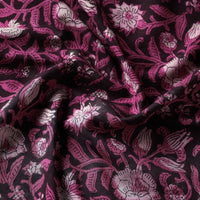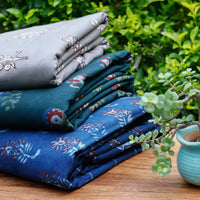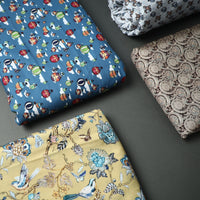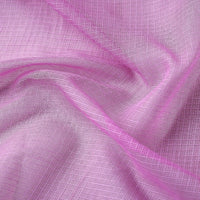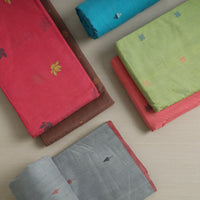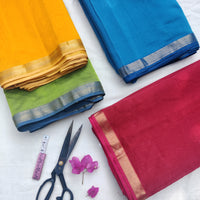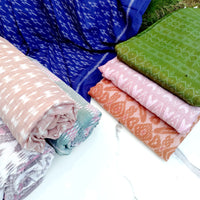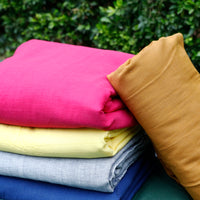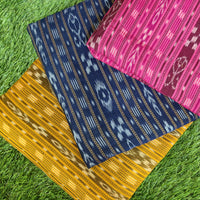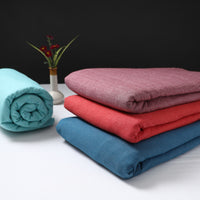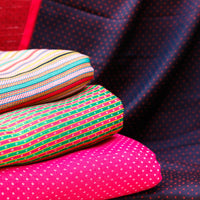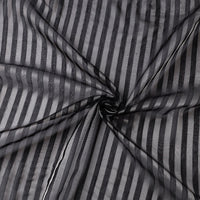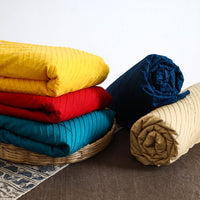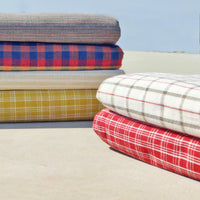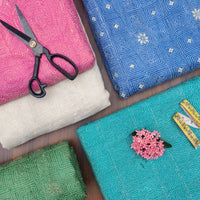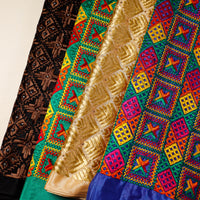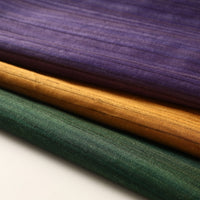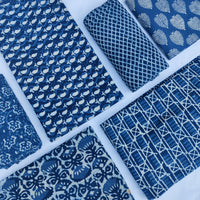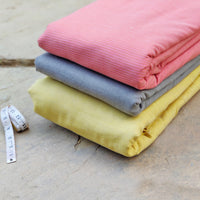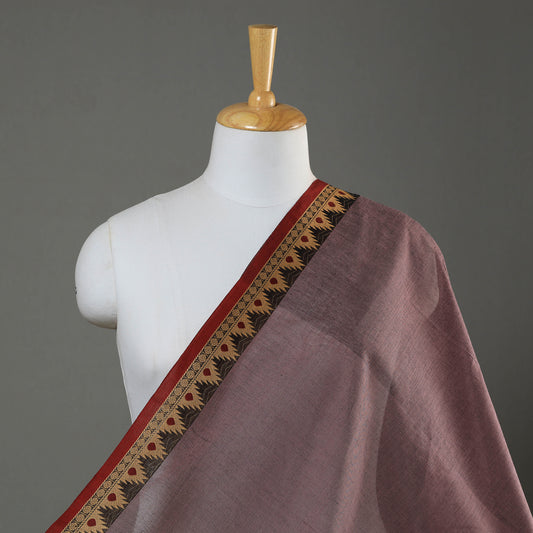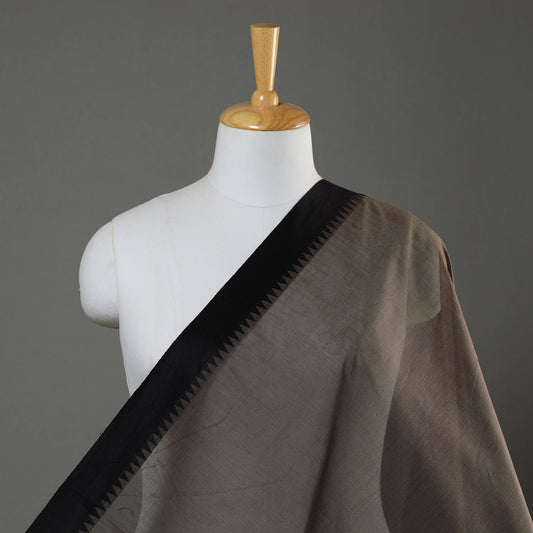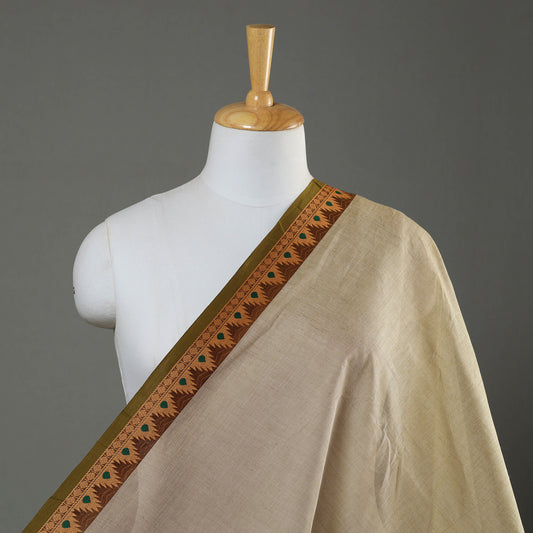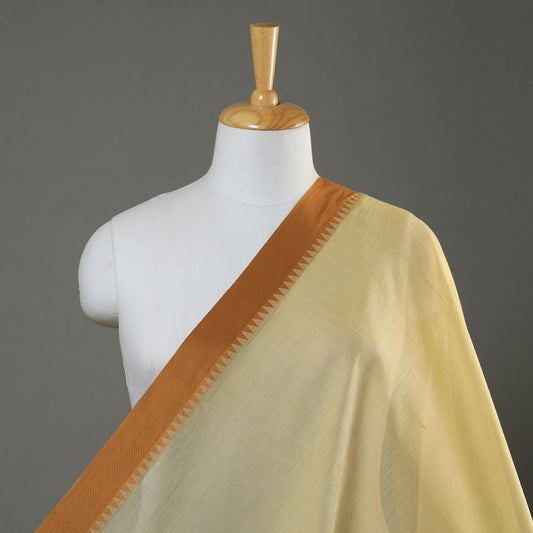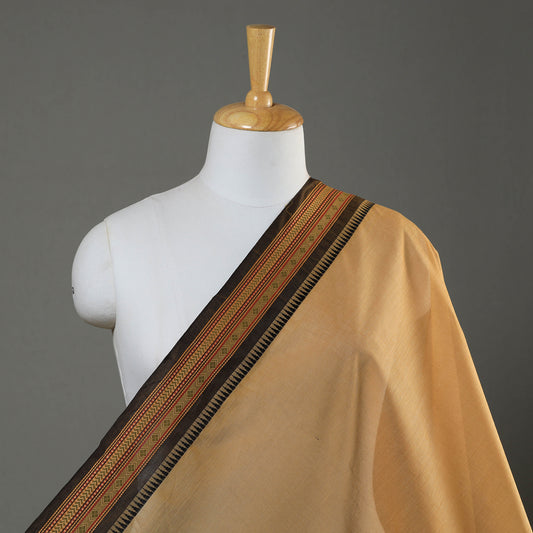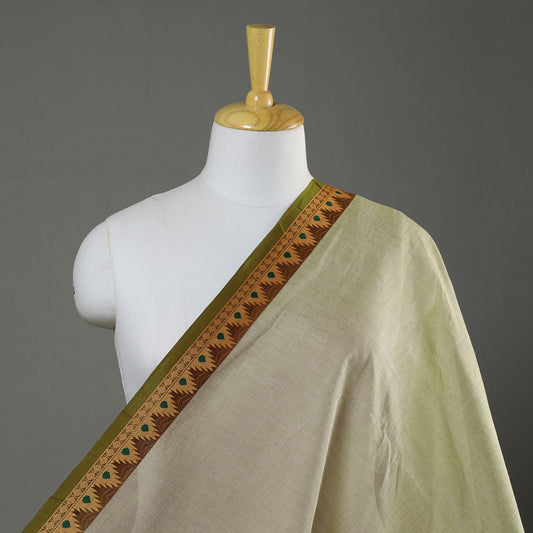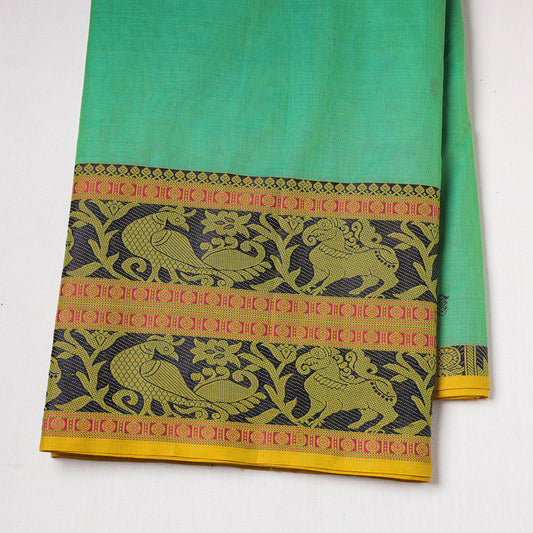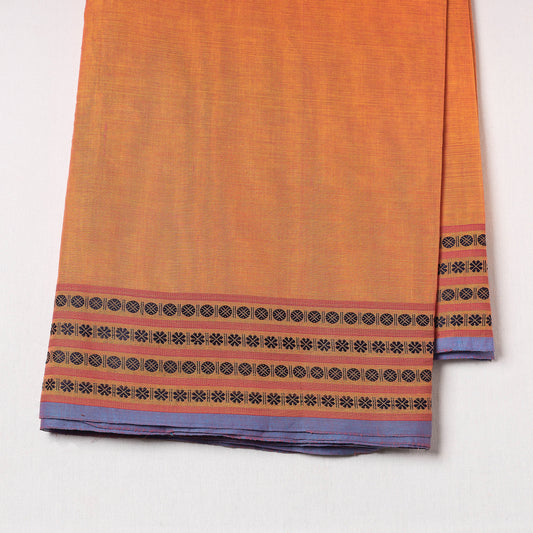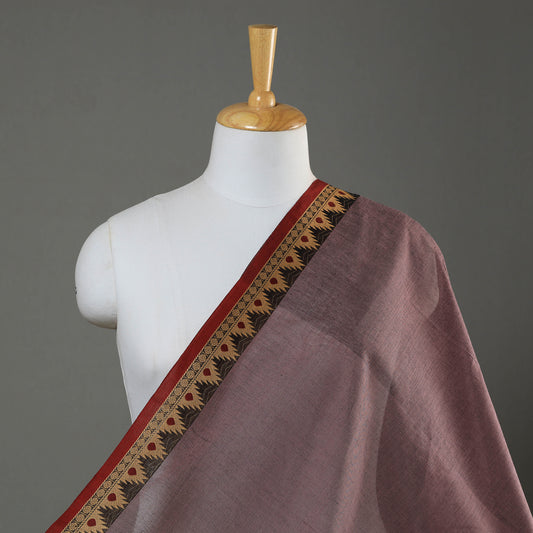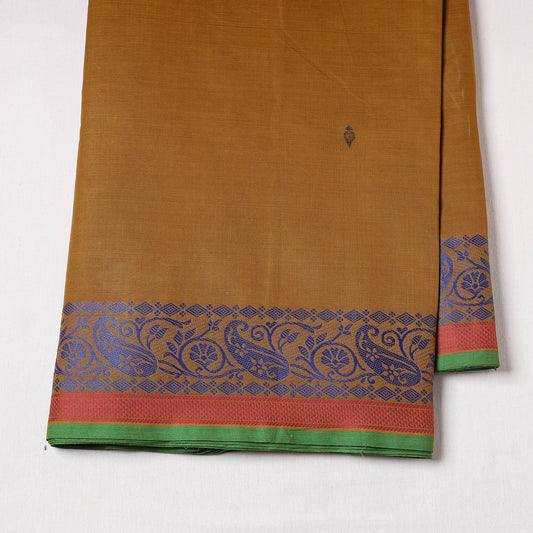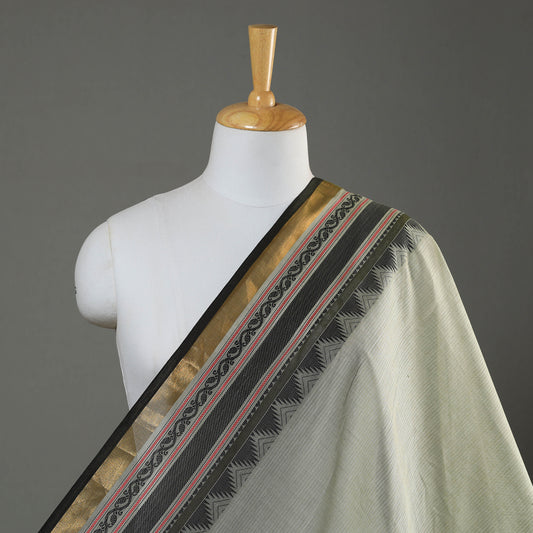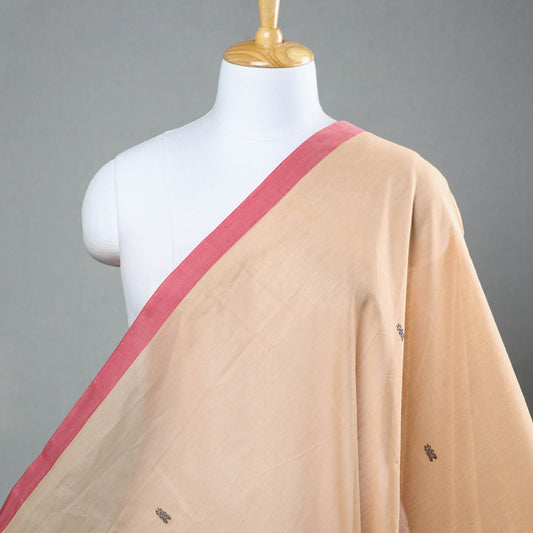The Timeless Legacy of Kanchipuram Fabric
Introduction: The Essence of Kanchipuram
Kanchipuram, a historic town in Tamil Nadu, India, is synonymous with unparalleled craftsmanship. While globally recognized for its silk sarees, Kanchipuram’s lesser-known yet equally significant cotton fabric has been woven with the same precision and devotion for centuries. This fabric represents not just a textile but the living history of a craft passed down through generations, embodying the cultural and spiritual essence of India.
A Historical Weave: Kanchipuram’s Craftsmanship
Kanchipuram’s weaving tradition dates back over 400 years, rooted in the town’s connection to Hinduism and its temples. The weavers, predominantly from the Devanga and Saligar communities, have preserved ancient techniques that originated during the reign of the Chola dynasty and were later refined under the Vijayanagara Empire. These weavers have historically been the keepers of sacred designs and motifs, often inspired by temple architecture, mythology, and nature, which they meticulously incorporate into the fabric.
This textile tradition, originally reserved for royal and religious attire, has evolved yet remains deeply tied to rituals and ceremonies, particularly in South India. The continuity of these weaving practices highlights the resilience of these communities, who have weathered economic changes and industrialization by adhering to time-honored methods.
The Crafting Process: A Testament to Tradition
The making of Kanchipuram cotton fabric is an intricate process that begins with the selection of fine cotton yarn, known for its softness and durability. The yarn is hand-dyed using natural dyes, a practice that not only honors tradition but also supports sustainable and eco-friendly methods. These natural dyes, often derived from plants, minerals, and other organic sources, lend the fabric its vibrant and enduring colors, which are resistant to fading.
The weaving itself is performed on traditional handlooms, where weavers employ the korvai technique—a method unique to Kanchipuram that seamlessly merges the body and border of the fabric. This technique requires exceptional skill and patience, as it involves intricate interlocking of threads to create bold, contrasting borders that are a hallmark of Kanchipuram textiles.
Cultural and Spiritual Significance
Kanchipuram fabric, whether silk or cotton, holds deep cultural significance in South India. The fabric is often used in traditional ceremonies, weddings, and religious rituals, symbolizing purity, prosperity, and respect for tradition. The fabric’s association with sacred rites underscores its importance not just as a material commodity but as a vessel of cultural heritage.
In addition to its use in ceremonies, Kanchipuram fabric is also a preferred choice for daily wear among many in South India, valued for its comfort, durability, and the pride it brings in wearing a piece of their cultural identity. This daily wear aspect is particularly prominent with Kanchipuram cotton, which is both practical and deeply symbolic.
Weaving Communities: Guardians of an Enduring Craft
The weavers of Kanchipuram are the true custodians of this ancient craft. Their expertise, passed down through generations, ensures that the integrity of the fabric remains uncompromised. For these artisans, weaving is more than a profession—it’s a legacy and a spiritual endeavor. Their lives are intertwined with the loom, and every piece they create is a testament to their dedication to preserving their ancestors’ art.
One such weaver is Lakshmi, a fourth-generation artisan who continues to weave Kanchipuram cotton sarees with the same techniques her great-grandmother used. Despite the challenges of modern competition and the lure of faster, machine-made alternatives, Lakshmi remains committed to hand-weaving, ensuring that each piece she creates carries the authenticity and quality that her family has been known for.
Sustainability: A Commitment to the Environment and Tradition
Kanchipuram fabric is inherently sustainable, with its reliance on natural dyes and handloom techniques. The use of organic materials and traditional methods ensures that the environmental impact is minimal, making Kanchipuram cotton a preferred choice for eco-conscious consumers.
At iTokri, we uphold this commitment to sustainability by partnering with artisans who share our values. Our collaboration with Kanchipuram weavers supports not only their livelihoods but also the preservation of these environmentally friendly practices. By choosing iTokri, customers are not only acquiring a beautiful piece of fabric but also contributing to the sustainability of a centuries-old craft.
Why Choose iTokri: Authenticity, Heritage, and Global Reach
Authenticity and Trust: iTokri guarantees the authenticity of every product, ensuring that what you receive is a genuine piece of Indian heritage. We work directly with artisans, cutting out middlemen to provide you with the highest quality fabric while ensuring that the weavers are fairly compensated.
Cultural Preservation: iTokri is dedicated to the preservation of traditional crafts. Our Kanchipuram fabric collection is a reflection of this commitment, offering you not just a product but a piece of history and culture that has been lovingly crafted by skilled artisans.
Sustainability at Core: We are committed to sustainable practices at every step—from sourcing materials to packaging. Our Kanchipuram fabric is a testament to this commitment, offering an eco-friendly alternative that does not compromise on quality or beauty.
Community and Engagement: iTokri is more than a marketplace; it’s a community. We connect customers with the stories of the artisans who create their products, offering a deeper appreciation of the craft and the cultural heritage it represents.
Global Reach, Local Touch: While iTokri serves a global audience, our approach is deeply rooted in local practices. Our platform bridges the gap between traditional techniques and modern consumer demands, ensuring that you receive a product that is both authentic and relevant.
Conclusion: Be Part of the iTokri Movement
When you purchase Kanchipuram fabric from iTokri, you are not just buying a textile; you are supporting a tradition, a community, and a sustainable way of life. Join the iTokri family today and bring home a piece of India’s rich cultural heritage.
Call-to-Action
Explore our Kanchipuram fabric collection and discover the elegance of authentic, handcrafted textiles. Your purchase supports artisans, preserves cultural heritage, and promotes sustainability. Shop now and make a difference.
FAQ: All You Need to Know About Kanchipuram Fabric
1. What is Kanchipuram fabric, and why is it so famous?
Answer:
Kanchipuram fabric, often referred to as the "Queen of Silks," is a traditional textile originating from the town of Kanchipuram in Tamil Nadu, India. It is most famous for its luxurious silk sarees, known for their vibrant colors, rich textures, and intricate patterns. The fabric is woven using high-quality silk and zari (a type of fine gold or silver thread), making it a symbol of elegance and cultural heritage. Kanchipuram fabric is also known for its durability and the unique technique used to create bold, contrasting borders, which is a hallmark of this textile.
2. What makes Kanchipuram cotton fabric different from other cotton fabrics?
Answer:
Kanchipuram cotton fabric is distinct due to its traditional handwoven techniques and the use of natural dyes. Unlike mass-produced cotton fabrics, Kanchipuram cotton is crafted on handlooms, where each piece is carefully woven by skilled artisans. The fabric is known for its softness, durability, and intricate designs, often featuring motifs inspired by temples, nature, and mythology. Additionally, the unique korvai technique used in weaving Kanchipuram fabric allows for a seamless blend of the body and border, creating a visually striking textile that stands apart from other cotton fabrics.
3. How can I identify authentic Kanchipuram fabric?
Answer:
To identify authentic Kanchipuram fabric, look for the following characteristics:
-
Weight and Texture: Authentic Kanchipuram silk sarees are heavier due to the quality of silk and zari used. The fabric feels luxurious and smooth to the touch.
-
Contrasting Borders: Traditional Kanchipuram fabric features bold, contrasting borders that are woven separately and then attached using the korvai technique. This method creates a distinct transition between the body and the border of the fabric.
-
Motifs: The designs often include motifs like peacocks, temple borders, and mythological figures, reflecting the cultural heritage of the region.
-
Zari Quality: Genuine Kanchipuram sarees use real silver zari coated with gold. You can test the zari by scratching it gently to see if the silver is exposed underneath.
-
Weaver's Mark: Many authentic pieces include a small, subtle mark or signature from the weaver, which may be found in the border or pallu (the end piece of the saree).
4. How should I care for my Kanchipuram cotton saree to ensure its longevity?
Answer:
Caring for your Kanchipuram cotton saree involves a few simple but essential steps:
-
Washing: Hand wash the saree in cold water using a mild detergent. Avoid using harsh chemicals or bleach, as they can damage the fabric and fade the colors.
-
Drying: Dry the saree in the shade, away from direct sunlight, to prevent the colors from fading. Avoid wringing the saree to preserve its shape and texture.
-
Ironing: Iron the saree on a low to medium setting while it is slightly damp, or use a pressing cloth to avoid direct heat. Be careful with the zari, as high heat can damage it.
-
Storage: Store the saree in a cool, dry place, preferably wrapped in a muslin cloth to allow it to breathe. Avoid using plastic covers, which can trap moisture and lead to mildew.
5. What occasions are Kanchipuram fabric sarees typically worn for?
Answer:
Kanchipuram fabric sarees are traditionally worn for significant occasions such as weddings, religious ceremonies, and festivals. In South Indian culture, these sarees are considered auspicious and are often chosen for bridal attire due to their rich texture, vibrant colors, and cultural significance. They are also popular during festive events like Diwali, Pongal, and other celebrations where traditional attire is preferred. The luxurious feel and elegant appearance of Kanchipuram sarees make them a go-to choice for any event where one wishes to make a statement with their attire.
6. Is Kanchipuram fabric environmentally friendly?
Answer:
Yes, Kanchipuram fabric, especially the cotton variety, is considered environmentally friendly. The production process often involves the use of natural dyes derived from plant extracts and minerals, which are less harmful to the environment compared to synthetic dyes. Additionally, the fabric is woven on handlooms, which consume no electricity, reducing the carbon footprint associated with its production. The emphasis on traditional, sustainable practices in the creation of Kanchipuram fabric aligns well with eco-friendly values.
7. What types of products are available in Kanchipuram cotton fabric besides sarees?
Answer:
Beyond the iconic sarees, Kanchipuram cotton fabric is used to create a variety of other products, including:
-
Dupattas: Lightweight and intricately designed, these complement both traditional and contemporary outfits.
-
Dress Materials: Unstitched fabric sets that can be tailored into salwar suits, kurtas, or other garments, offering versatility in design and style.
-
Blouses: Fabric pieces specifically woven to match sarees, available in different designs and patterns.
-
Home Décor: Some artisans use Kanchipuram fabric to create unique home décor items like cushion covers, table runners, and curtains, adding a touch of elegance to interiors.
8. How is Kanchipuram fabric contributing to the livelihood of local artisans?
Answer:
The production of Kanchipuram fabric plays a crucial role in supporting the livelihoods of local artisans in Tamil Nadu. Many weavers belong to families that have been engaged in this craft for generations. By continuing to produce Kanchipuram fabric using traditional methods, these artisans preserve their cultural heritage while earning a sustainable income. Brands like iTokri are pivotal in this ecosystem, as they connect these artisans with a global market, ensuring that the weavers are fairly compensated for their work. This not only helps maintain the craft but also uplifts the communities that rely on it.
9. Where can I buy authentic Kanchipuram fabric online?
Answer:
Authentic Kanchipuram fabric can be purchased online from reputable platforms like iTokri. iTokri is dedicated to promoting traditional Indian crafts, working directly with artisans to ensure that the products are genuine and of high quality. By shopping at iTokri, you can be confident that you are buying authentic Kanchipuram fabric, whether in the form of sarees, dress materials, or other textile products. Additionally, iTokri provides detailed descriptions and images of each product, making it easier for customers to make informed decisions.
10. Why is Kanchipuram fabric considered a sustainable choice?
Answer:
Kanchipuram fabric is considered sustainable for several reasons:
-
Use of Natural Materials: The fabric is often made using natural cotton and dyes, which are less harmful to the environment compared to synthetic alternatives.
-
Handloom Weaving: The traditional handloom process is energy-efficient and supports local economies without relying on industrial machinery.
-
Long-Lasting Quality: Kanchipuram fabric is known for its durability, meaning garments made from this fabric have a longer lifespan, reducing the need for frequent replacements.
-
Supporting Artisan Communities: By purchasing Kanchipuram fabric, consumers help sustain traditional crafts and the communities that practice them, promoting cultural preservation and ethical consumption.
कांचीपुरम कपड़े की कालजयी विरासत
कांचीपुरम, तमिलनाडु का ऐतिहासिक नगर, अपनी अद्वितीय कारीगरी के लिए प्रसिद्ध है। यह नगर विशेष रूप से अपने रेशमी साड़ियों के लिए जाना जाता है, लेकिन यहां का कपास का कपड़ा भी समान रूप से महत्वपूर्ण है। कांचीपुरम का यह कपड़ा न केवल एक वस्त्र है, बल्कि पीढ़ी दर पीढ़ी चली आ रही एक जीवंत परंपरा का प्रतीक है, जो भारतीय सांस्कृतिक और आध्यात्मिक धरोहर को संजोए हुए है।
कांचीपुरम की बुनाई परंपरा लगभग 400 साल पुरानी है, जो चोल और विजयनगर साम्राज्यों के समय में विकसित हुई थी। यहां के देवांग और सालीगर समुदायों के बुनकरों ने सदियों पुरानी तकनीकों को जीवित रखा है, जो मंदिरों की वास्तुकला, पौराणिक कथाओं और प्रकृति से प्रेरित डिज़ाइनों को इस कपड़े में बड़े ही कौशल और धैर्य के साथ पिरोते हैं।
कांचीपुरम कपास के कपड़े का निर्माण एक जटिल प्रक्रिया है, जिसमें बढ़िया सूती धागे का चयन किया जाता है, जिसे प्राकृतिक रंगों से हाथ से रंगा जाता है। इस कपड़े को पारंपरिक करघों पर बुना जाता है, जिसमें कोरवई तकनीक का प्रयोग होता है। यह कपड़ा दक्षिण भारत के समारोहों, धार्मिक अनुष्ठानों और शादियों में विशेष रूप से पहना जाता है, जहां यह पवित्रता, समृद्धि और परंपरा का प्रतीक होता है।
यह कपड़ा न केवल सांस्कृतिक महत्व रखता है, बल्कि पर्यावरण के प्रति जागरूक उपभोक्ताओं के लिए भी एक पसंदीदा विकल्प है। इसका उत्पादन पूरी तरह से प्राकृतिक और पर्यावरण-संवेदनशील तरीकों से होता है। iTokri जैसे ब्रांड इन बुनकरों के साथ साझेदारी कर न केवल उनकी आजीविका का समर्थन करते हैं, बल्कि इस पारंपरिक शिल्प को संरक्षित भी रखते हैं। इस प्रकार, कांचीपुरम का कपड़ा एक स्थायी और सांस्कृतिक रूप से समृद्ध विकल्प है, जो आधुनिक समय में भी अपनी प्रासंगिकता बनाए रखता है।

















